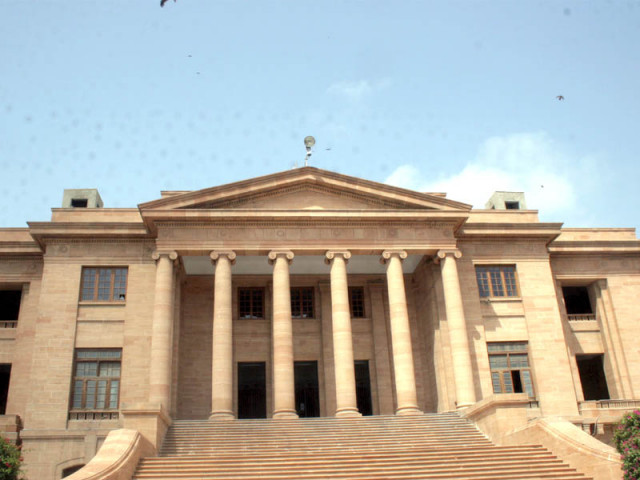SHC wants policy on settlement of peasants, labourers
Court hearing a case relating to village land being illegally converted into plots

Sindh High Court. PHOTO: EXPRESS
The petitioners, Muhammad Yousuf and Narain Das, residents of Chachro taluka of Tharparkar district, maintained that asaish [easement] and gauchers [pastures] in villages are being converted into plots. They accused the revenue officials of making these allotments under political influence or for personal interest.
"The Sindh Goth Abad Scheme Act and Sindh Katachi Abadi Act have been in field ... the deserving people are wandering without any permanent residence," they contended in the petition. They drew attention of the court towards conversion of land for grazing of livestock animals in residential schemes.
Land dispute: Four killed in firing by rival tribes
Advocate Zaheeruddin S Laghari and the assistant attorney-general apprised the bench that the British government in 1923 formed the Thar Land Grant Policy under which easement and pastures cannot be allotted for other purposes. The two lawyers also stated that despite the availability of land and laws for providing residential land to the poor, millions of people are still homeless in the province.
"... none would deny that haris [peasants] or poor people enjoy the status of citizens of Islamic Republic of Pakistan and the Constitution, thereof, provides a guarantee to life, law, business, trade, dignity and privacy," the bench observed.
Putting the chief secretary and senior member of the Board of Revenue on notice, the court ordered the government to also submit details of villages, easements and pastures converted for other purposes, including housing schemes. The deputy commissioners of all districts of Sindh have also been asked to provide complete reports of the villages established on government land that have still not been regularised under the Sindh Goth Abad Scheme Act, 1987.
The court will resume hearing of the case on September 4.



















COMMENTS
Comments are moderated and generally will be posted if they are on-topic and not abusive.
For more information, please see our Comments FAQ